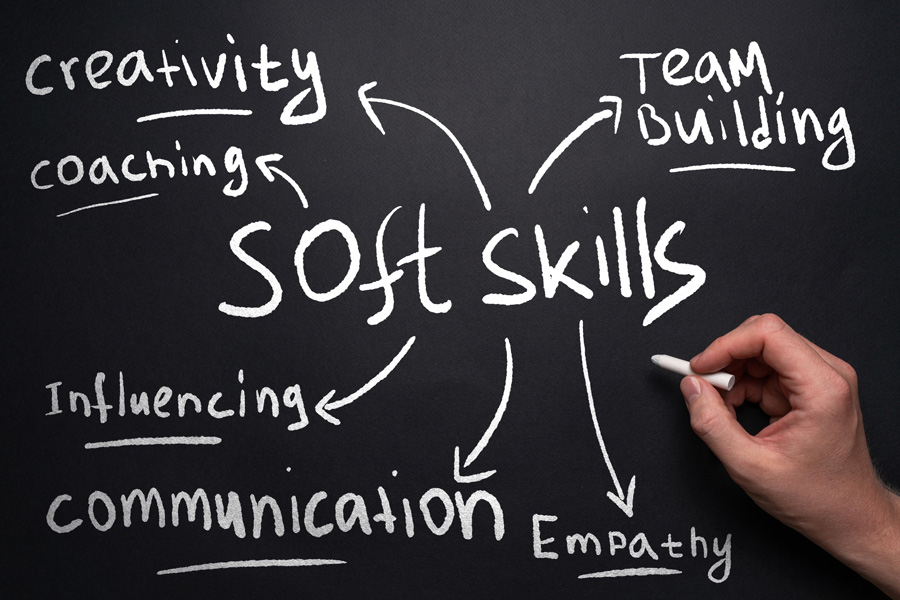Categories:
Tags:
The rise of digital profiles and remote work has significantly increased the importance of candidates’ and employees’ soft skills.
In the post-pandemic workplace, reduced face-to-face interaction, combined with increased uncertainty and complexity at work, has had a substantial impact on how we manage both professional and personal relationships, as well as our emotions and self-esteem. Have you been working on your soft skills to adapt to this new work reality?
What are soft skills?
When we talk about soft skills, we’re referring to abilities related to emotional intelligence and interpersonal management. These include communication, active listening, empathy, teamwork, leadership, self-control, time management, problem-solving, creativity, and the ability to build relationships with various people and groups.
While many of these skills are rooted in personality, many can be developed and strengthened over time.
In recent years, employability has shifted dramatically, evolving from a purely economic focus to encompass other critical aspects such as work-life balance and creating positive experiences that foster personal growth. Unlike technical skills or “hard skills,” which are acquired through education and work experience, soft skills are honed through interpersonal relationships, emotional management, self-control, and self-esteem.
This brings us to the next point: identifying the most in-demand skills in today’s work environment and understanding how to spot them in candidates or internal talent.
What are they, and how can they be identified?
Soft skills are subjective. There’s no fixed list or exact science to measure and identify them in individuals. However, considering the current job landscape, we can pinpoint five key soft skills that play a crucial role for today’s candidates and employees.
- Communication and the ability to express ideas and opinions assertively. Empathy, active listening, and self-control are essential here. Given the high degree of uncertainty and ambiguity today, effective communication to navigate complex situations is one of the most sought-after skills.
- Flexibility and Resilience, or the ability to adapt to changing environments and unexpected challenges. Being proactive and prepared to face challenges confidently, emerging stronger from adverse situations, demonstrates a high level of commitment and perseverance—skills highly valued in today’s market.
- Creativity and Innovation, and the knack for imagining and generating new ideas, along with knowing how to apply them depending on the context or common solutions.
- Critical Thinking and the ability to analyze objectively, free from external biases, are highly valued for making well-informed decisions.
- Positivity and Optimism, along with the skill to inspire positive thoughts and emotions. Building trust and spreading enthusiasm are critical in today’s workplace, helping to counteract negative emotions that may arise from uncertainty and complex situations.
How can I measure and develop soft skills in my team?
Soft skills can be measured in various ways, depending on the objective. For selection processes or internal promotions, several methods exist, ranging from psychometric tests and group interviews to gamification and personality assessments.
For many HR professionals, soft skills are as vital as hard skills in meeting today’s workplace challenges. Employees with strong soft skills contribute to greater well-being and productivity within their organizations. So much so that many companies include time management, communication, or presentation skills courses in their development programs, and leverage digital learning platforms to cultivate these skills.
And while many soft skills are intrinsic to personality, experts agree they can be worked on and improved.
Transforming organizations through soft skills
Developing soft skills has a direct impact on organizational performance. A recent Harvard study found that companies with employees who possess strong interpersonal skills experience a 12% increase in productivity and a 30% reduction in staff turnover.
In today’s complex, uncertain, and continuously transforming work environment, companies need teams trained in non-technical skills. Boosting productivity and reducing staff turnover are essential outcomes to remain competitive in the current market.
